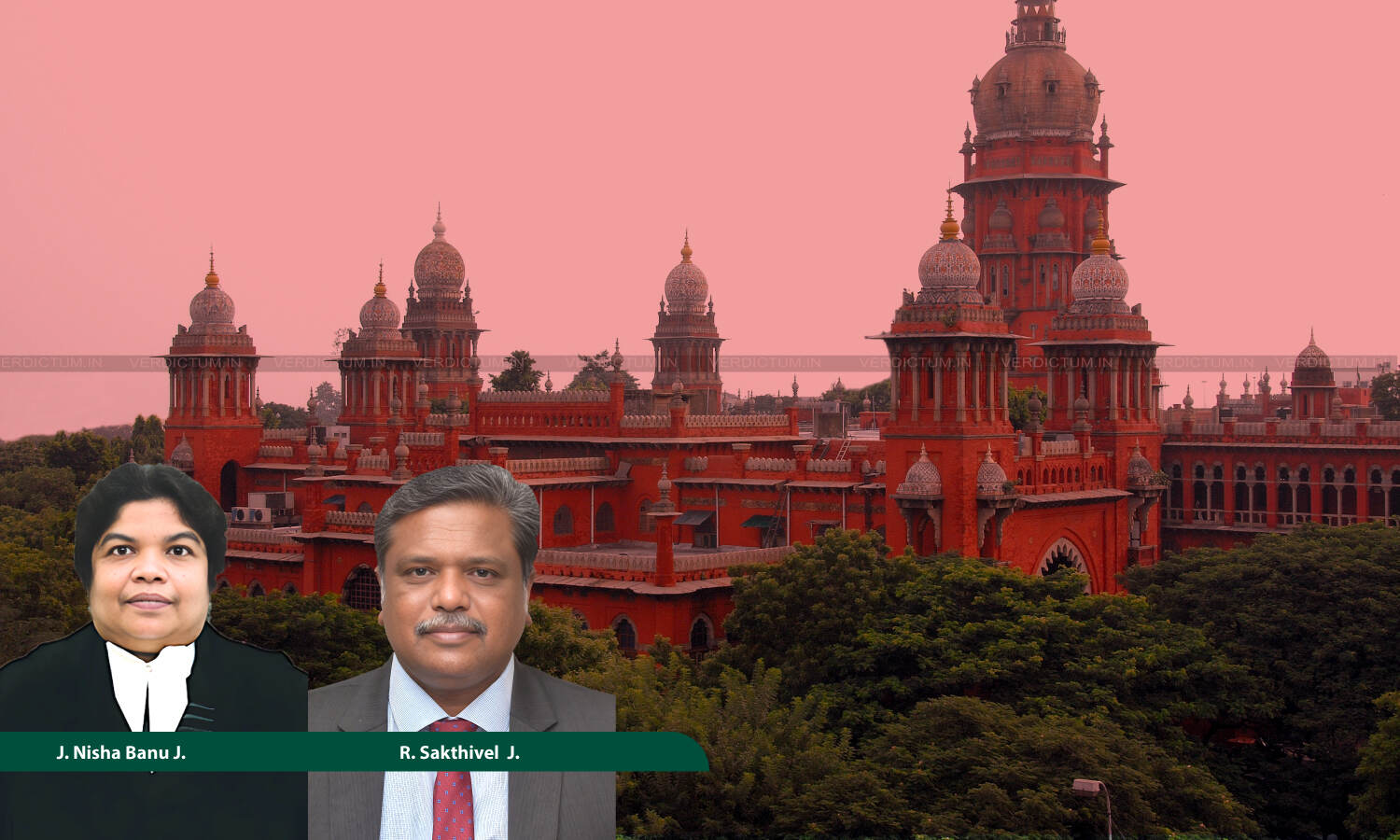Madras High Court While Granting Divorce

While allowing the petition of a man seeking divorce, the Madras High Court observed that unestablished sexual allegations made by a wife against her husband and his father amount to cruelty.
The Appeal before the High Court was filed under Section 19 of the Family Court Act, 1984, read with Section 28 of the Hindu Marriage Act, 1955, praying to set aside the order of the Family Court.
The Division Bench of Justice J. Nisha Banu and Justice R. Sakthivel held, “As elaborated above, the unestablished sexual allegations made by the respondent against the petitioner and his father, amounts to cruelty and thus, the petitioner has made out a case under Section 13 (1) (i-a) of H.M. Act. Points for consideration arising in these Civil Miscellaneous Appeals are answered accordingly. The petitioner is thus entitled to a Decree of divorce.”
Advocate V. Kamalanathan represented the Appellant while Advocate R. Mahalakshmi represented the Respondent.
Factual Background
The appellant and respondent are husband and wife, whose marriage was solemnised in the year 2015. They were blessed with a male child in 2016. Some disputes shot up between the couple, and hence the husband filed a petition in 2017 under Section 13 (1) (i-a) of the Hindu Marriage Act, 1955 (H.M. Act) seeking divorce before the Family Court. The crux of the appellant’s case was that the respondent/wife refused to live with his parents and demanded separate residence, creating conflicts. The respondent lived together with the petitioner only for 51 days in the 2 years following their marriage.
The respondent-wife had filed for restitution of conjugal rights in the year 2021. After a full-fledged trial, separate judgments were pronounced, ruling in favour of the wife. The divorce petition was dismissed, and that for restitution of conjugal rights was ordered. Aggrieved thereby, the appellant husband approached the High Court.
Reasoning
On the allegation against the wife that she had been with the petitioner for only 51 days in the two years of their marital life, the Bench found that the same was not supported by any credible evidence. “Further it is natural for a newlywed wife to visit frequently her parents’ home, where usually she would have grown up and spent her life so far. Further, soon after the marriage, the respondent got pregnant and it is usual for pregnant women to spend the later part of pregnancy at their mother’s place. These cannot be termed as cruelty”, it said.
The evidence available on record showed that till the child’s birth, the couple was leading a typical marital life with the usual wear and tear. After filing the divorce petition, the respondent preferred a complaint making sexual allegations against her husband and father-in-law. She remarked that both of them as perverts, alleged that her father-in-law sexually harassed her, as well as that the petitioner was in casual relationships with various women. It was her case that only on the written assurance of the petitioner that he would reunite with the respondent, she withdrew the complaint.
The Bench was of the view that the respondent may be willing to resume her marital life with the petitioner, but in view of the mental cruelty caused by her, the petitioner’s unwillingness for reunion was a justifiable one. “His apprehensions about continuing the marital life with the respondent, even after the defamatory and derogatory allegations of sexual nature against him and his father, cannot be brushed aside simply. It has been eight years since the couples began living estranged and there has been no significant improvement so far. The matter was referred to Mediation in 2024 by this Court upon considering the facts and circumstances of this case. Unfortunately, the parties did not reach a consensus”, it stated.
Thus, allowing the appeals, the Bench allowed the petition filed by the appellant/husband seeking to dissolve his marriage with the respondent and dismissed the petition filed by the respondent/wife seeking restitution of conjugal rights. It was further noted that the petitioner has been paying a maintenance of Rs 25,000 to the respondent and his 8-year-old child (who is under the custody of the respondent) every month. “…this Court is of the view that though divorce is granted in favour of the petitioner, maintenance rights of the respondent shall remain unaffected”, the Bench concluded.
Cause Title: A v. B (Neutral Citation: 2025:MHC:1267)
Appearance
Appellant: Advocates V. Kamalanathan, N. Manoharan
Respondent: Advocate R. Mahalakshmi



